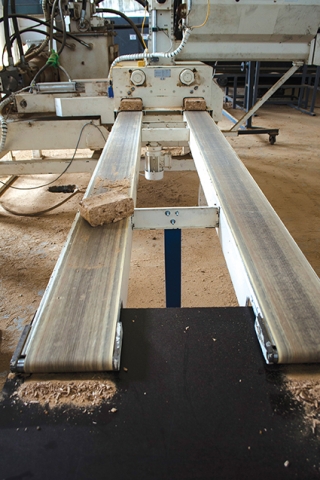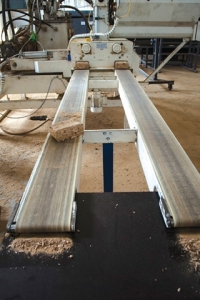Biomass Briquettes: the Budget & Environmentally Friendly Alternative to Firewood
For Georgia, forests are a valuable natural resource covering about 40 percent of the country's territory. The biodiversity is important to the economic growth of the country as it provides the necessary household resources for the rural population.
Currently, the forests are significantly tarnished as a result of human impact. High levels of poverty in rural areas and lack of alternative sources of energy increases anthropogenic pressure on forest ecosystems and leads to the obtaining of timber with illegal and unsustainable methods.
Unsustainable forest management reduces the biodiversity and harms rural residents. Forest deprivation results in decreased resources and frequent natural disasters, which, again, worsens the social conditions of the rural population.
It is a known fact that demands on heating resources increase with the growth of the population. Wood consumption by household is significantly higher than the amount forests can produce. 67 percent of Georgia’s rural population uses firewood for heating purposes, which is a heavy burden on our forests. In order to tackle the problem, the government should introduce other types of heating options to its population. And biomass briquettes are a great alternative due to the long lasting blaze, price and low negative effect on the environment.
Biomass briquettes are pressed bio fuel made from dehydrated wood chips and agricultural waste. After collection of bio mass, the goods are shredded and later on pressed under high pleasure without any glue or other artificial additives.
A factory manufacturing such briquettes was built in Matani village, Kakheti region, in April this year. According to Egnate Abashidze, the site manager, the partner organizations, together with Friends of Green Earth brought machinery and specialists from Germany. The task of building the factory was given to the National Forestry Agency management by the municipality for a 2-year usufruct period.
“The factory uses the unused biomass found in the forest, which in its way helps in cleaning up the forests,” notes Abashidze, continuing that one piece weighs 800 grams and requires only 6 cubic meters of shredded and dried biomass for its production.
Compared to firewood, the briquettes have a higher heat and energy capacity – one cubic meter firewood blazes for 1,000 kw per hour, while the same number of briquettes burn for 5,500 kw per hour. Additionally, transportation of briquettes is much easier and does not require large vehicles.
Its environmentally friendly characteristics are also to be noted. The moisture in such briquettes is 8-12 percent, which guaranties a clean and efficient blaze, with less smoke and ashes. And the financial benefit of a briquette is significant. Let’s say that a family needs 10 cubic meter firewood (aprox. 10,000 kw/hour) costing 600-1000 GEL. To get the same energy a family can buy 1.5 cubic meter briquettes with the energetic value of 8,000 kw per hour for only 330 GEL and add 3 cubic meter firewood for 180-300 GEL. In the end, the family gets 1,000 kw/hour as a bonus and spends only 510-630 GEL.
Abashidze notes that currently, the organizations are working with the government to replace wood with briquettes especially in those educational institutions where firewood is a main fuel for heating. “Additionally, CENN is working on awareness-rising campaigns among population to promote the benefits,” he added.
The Biomass Briquettes factory is a UNDP funded project implemented by the NFA in cooperation with CENN (Sustainable Forest Governance in Georgia project, funded by Austrian Development Cooperation), the Deutsche Gesellschaft für Internationale Zusammenarbeit (GIZ) and The Greens Movement of Georgia
Baia Dzagnidze












